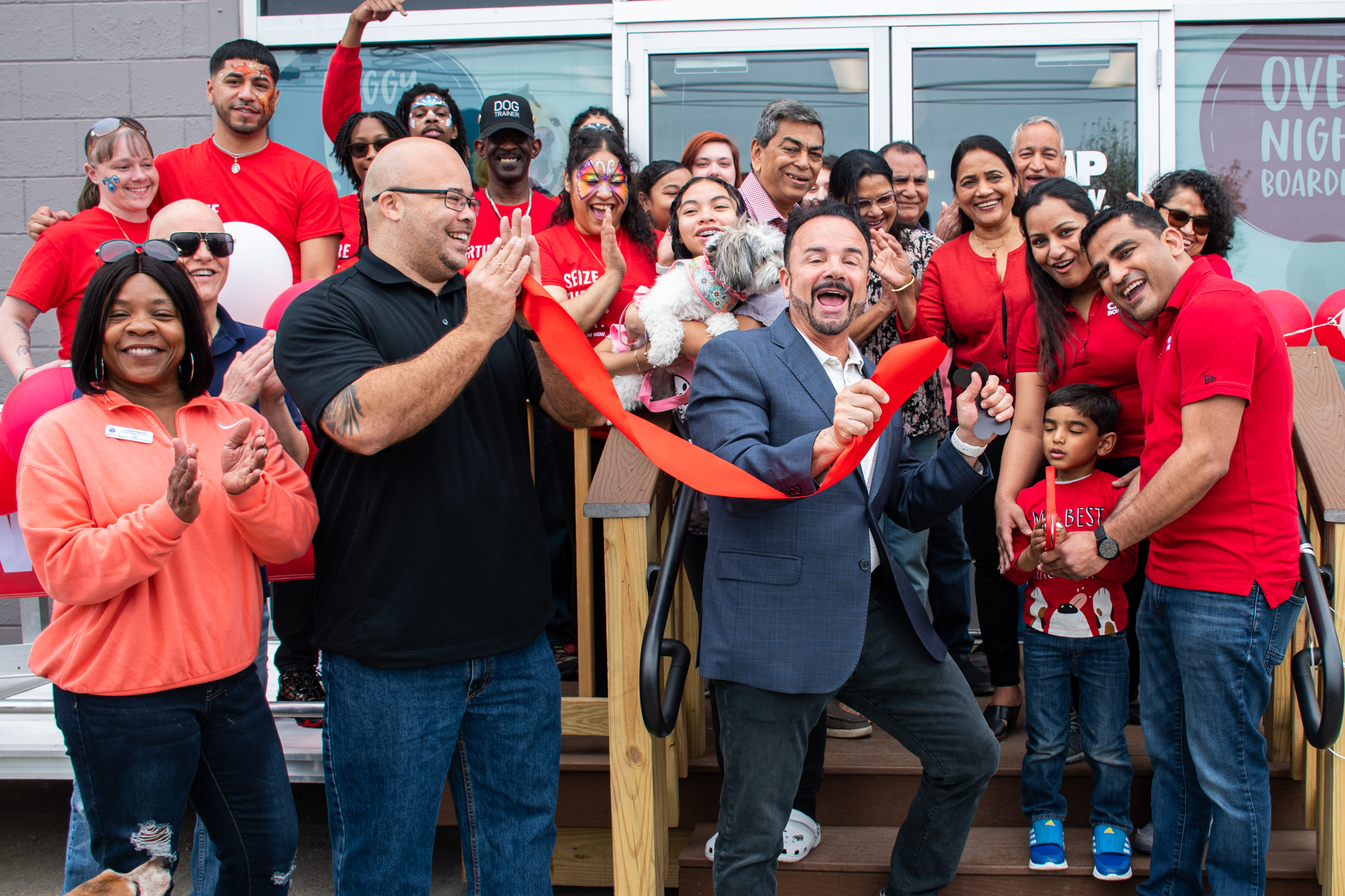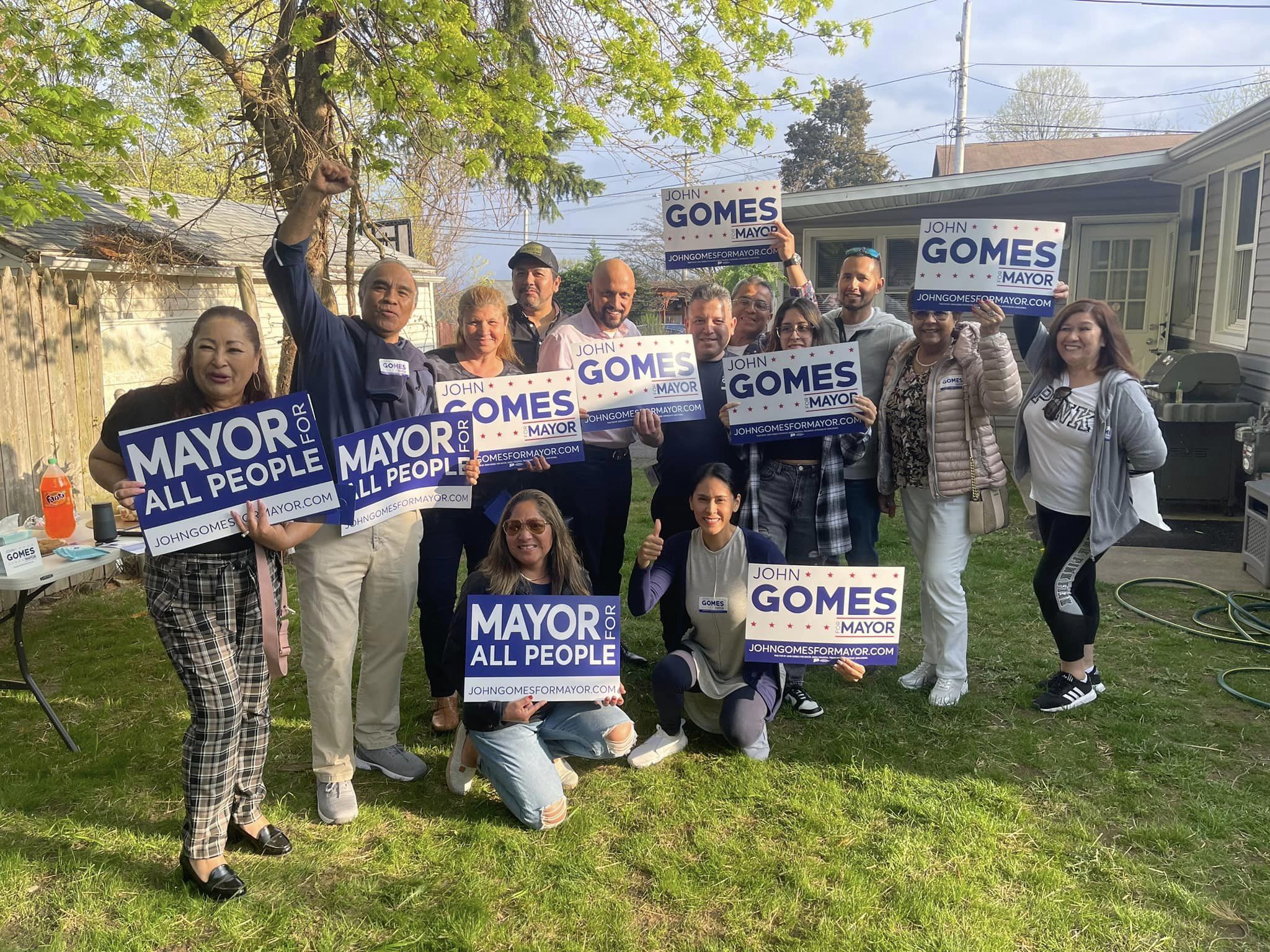
Ubiquity is the campaign commonality of Mayor Joe Ganim and his former ally, now foe, John Gomes who served nearly seven years in his administration.
For Ganim it’s the rose garden strategy leveraging power of incumbency: delivering proclamations at community churches, awards ceremony for the Bridgeport Emergency Communications Center, ribbon cutting at the doggy day care center Camp Bow Wow, throwing the first pitch at the opening of North End Little League, citations saluting animal control staff, leading demolition of the blighted Remington property on the East Side.
For multi-linguist Gomes its neighborhood meet and greet sessions, visits with West Side community leaders, profiling his background via Facebook videos, appearing on Spanish-speaking media outlets to share his immigrant experience, introducing himself to Bridgeport’s Muslim community, visits with small business owners.

Bridgeport’s small 16 square miles is a perfect marriage with retail politics. You can cover a lot more ground than say the stately, large-acre zoning along Connecticut’s gold coast.
So far State Senator Marilyn Moore in particular and newcomer Lamond Daniels who has banked more campaign dough than the five-term incumbent are understated by comparison: Moore handcuffed by her legislative work in Hartford, Daniels a full-time job in Norwalk government.
Moore’s mayoral campaign visibility is dubiously linked to a “Marilyn Moore for State Senate” Facebook page.
Daniels Facebook page cheerleads his “Believe In Bridgeport” platform vacant of specific ideas.
Five months from a Democratic primary for mayor, there’s still time to manufacture ideas that may resonate with the electorate.
Moore is still relevant because she brings a state senate base to the table. Still her support from four years ago has thinned out from key operatives who have gravitated to the camps of Daniels and Gomes, the folks on the ground who hustle the signature search to qualify for a primary.
Ganim is the prohibitive favorite to win the Democratic endorsement in July. Something dramatic would have to occur to change that dynamic. Following the convention, opponents will have a few weeks to collect more than 2,000 certified signatures to qualify for the primary.
Based on his fundraising and a number of operatives once aligned with Ganim now supporting him, Gomes is well poised to qualify.
Moore presumably will have support from leaders of Ganim critic Bridgeport Generation Now Votes that were active early for Moore four years ago. This time around, however, the community group has been reticent to wave pompoms for Moore perhaps as cover for its synthetic “non-partisan” battle cry. “Transparency” is a highly selective word association for the organization that helped finance the failed court challenge of Ganim’s 2019 primary win over Moore.
If Moore stumbles, Daniels could be the default-candidate beneficiary for Gen Now.
The September primary may not settle this mayoral contest. Ganim opponents could weigh the landscape and decide the better route is directly to the general election and/or a Plan B: if short in the primary, anticipatory petitioning onto the November ballot.
Moore’s campaign four years ago bungled the manageable signature process to secure a spot on the Connecticut Working Families Party line, leaving her no other option than a write-in campaign.
This mayoral cycle is still very much a work in progress with many potential twists and turns.

